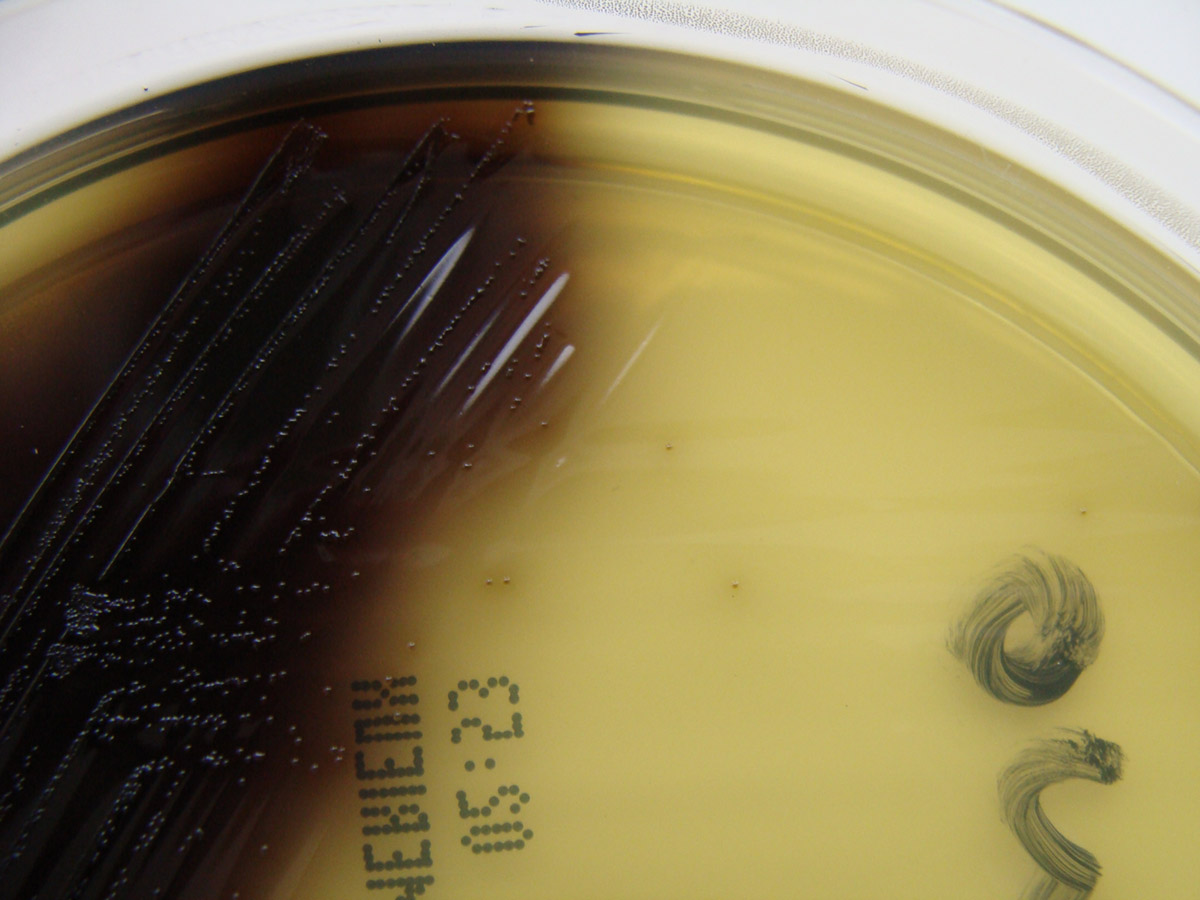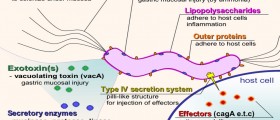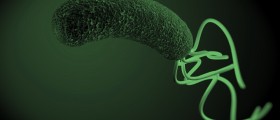
Listeria monocytogenes is a facultative anaerobe, a common culprit of food poisoning. The medical condition caused by ingestion of Listeria is known as listeriosis. The bacterium enters the blood stream via mucous membrane of gastrointestinal tract. Even though bacteria flow through the blood stream they are normally found inside body cells. The bacterium produces toxins responsible for cellular damage. The most optimal place for the bacteria to multiply is central nervous system and this part of the body is commonly affected in immune-compromised patients. The infection of central nervous system with Listeria is in a form of meningitis and/ or encephalitis. There is also a risk of transmission of the infection from a woman to her unborn child. In this case the infection is responsible for stillbirths, spontaneous abortions and sepsis.
It is estimated that 2,500 cases of listeriosis occur each year in the USA. The bacterium is commonly found in cattle, sheep and fowl and people get infected after consuming certain foods such as dairy products, fruits and vegetables contaminated by the bacterium.
Symptoms of Listeria Infection
The very infection can occur after ingestion of as few as 1,000 Listeria bacteria. After ingestion of contaminated food the incubation period lasts from one to eight weeks. Within the period of 5 days to 3 weeks the bacteria may be found in all body areas including the central nervous system, heart, eyes etc.
The infection commonly features with fever, muscle aches and a variety of gastrointestinal symptoms such as nausea, vomiting and diarrhea. In case infection has spread to the central nervous system the symptoms include headache, stiff neck and loss of balance, confusion and sometimes seizures. In encephalitis listeriosis may feature with symptoms that resemble those in stroke. Pregnant women may suffer from a mild form of the disease but the infection can lead to miscarriage, infection of the baby and stillbirth.
Diagnosing and Treatment for Listeria Infection
After performing physical and neurological examination the patient undergoes blood tests and in case of listeriosis of the central nervous system the person undergoes spinal tap procedure. The bacteria can be found in spinal fluid. During pregnancy the woman undergoes blood test which most commonly points to the presence of the infection.
Listeriosis is treated with antibiotics. There are several antibiotics highly effective against Listeria infection. Prompt treatment in pregnant women can effectively prevent infection of the fetus. Adequate prevention against listeriosis is achieved by proper preparation of animal products and avoiding non-pasteurized milk and certain dairy products such as cheese.

















Your thoughts on this
Loading...